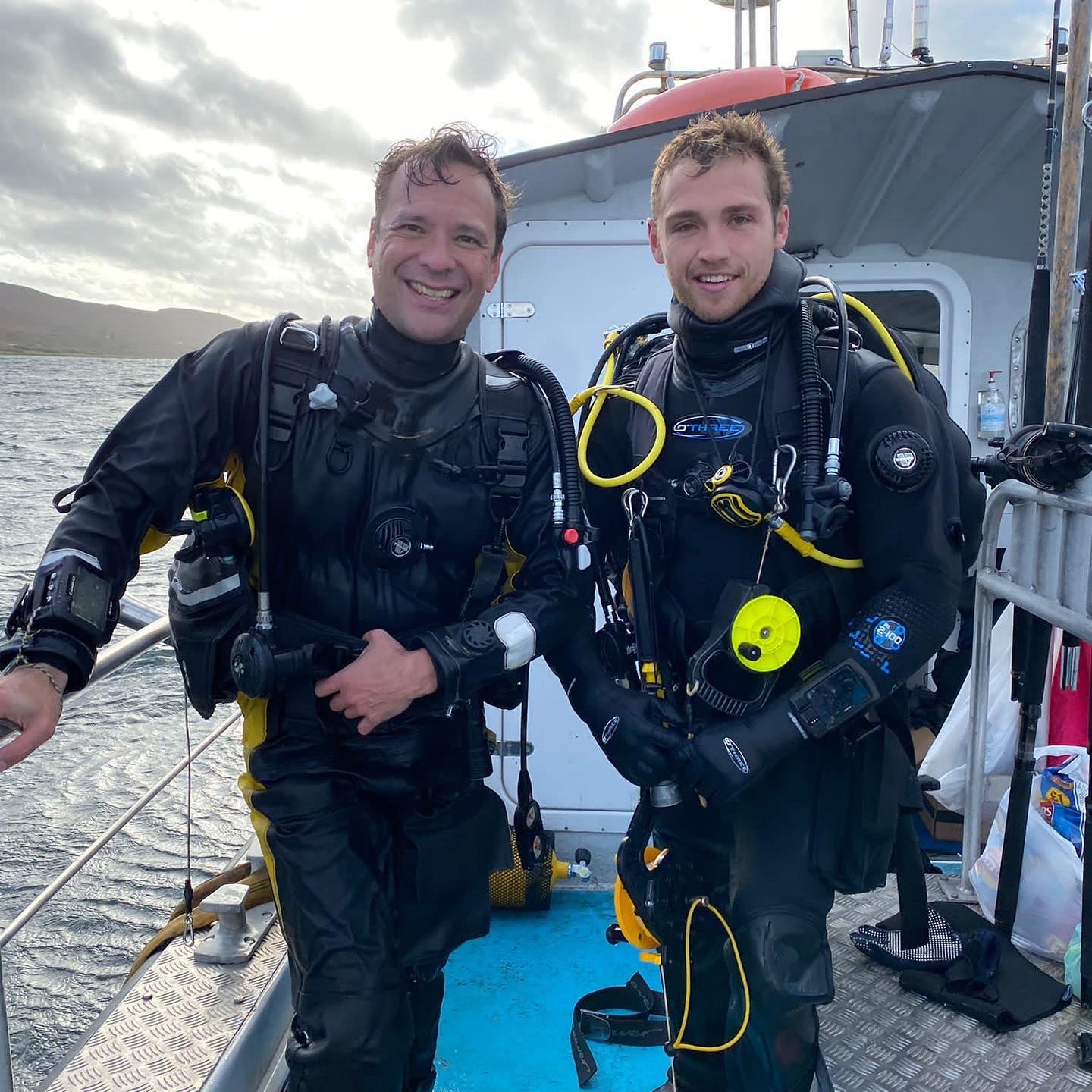Common dolphins and snapping shrimp found in Scottish seas highlights impact of warming oceans, say experts who sailed to Cop26
Both species are moving north to new areas, driving concerns about their impact on fragile ocean ecosystems

A team of wildlife experts who sailed round the UK to reach the Cop26 climate summit in Glasgow have gathered new evidence of species spreading further north, which they have said reveals the impact of warming seas caused by the climate crisis.
Vets, environmentalists and filmmakers, working alongside scientists and wildlife experts, recorded common dolphins and snapping shrimp “moving northward in large numbers, as far as the Outer Hebrides”, which they said provided “new evidence for climate change”.
During their trip, which took them from Cornwall in early October, up the west coast of the UK to Scotland’s Hebridean islands and back to the Firth of Clyde to reach Glasgow, the team have been filming what they find and uploading videos to inform the British public about what is happening in the country’s coastal waters.
They said their trip has revealed the “dangerously rapid changes in marine ecosystems”, which could result in threats to food supplies as well as rising sea levels and extreme weather increasingly affecting coastal communities.
As well as examining the impacts of the climate crisis, the team said they hope to highlight the fragility of the seas around Britain and build public support for action on ocean health, which they say is missing from the main agenda at Cop26.
Dr Paul Ramos, who is part of the team which has taken the boat to Glasgow, told The Independent the northwards expansion of snapping shrimp and dolphins were among the most “surprising discoveries” the team had made.

He said the creatures are “a traditionally warm water species that can be readily detected using hydrophone technology due to their extremely loud pop they produce when they create bubbles to stun prey.
“Reaching temperatures over 18,000F, (10,000C) these tiny bubbles produce a sound louder than a gunshot that can be heard hundreds of metres away under water.”
He said that over recent years the species has routinely been found in southern UK waters but appears to be spreading north.
“Our recordings have now demonstrated their presence and high abundance in all four countries of the UK, including as far north as the Hebrides,” he said.
“This northwards spread is significant because with the proven increase of sea temperatures, it means that the impacts of climate change are already on our shores.”

The surge in abundance of common dolphins around the UK is also a recent change to the large predators in our waters, the team said.
While common dolphins have long been common around the south west of the UK, their spread north is notable.
Dr Ramos said: “Working with the Hebridean Whale and Dolphin Trust, we’ve learned that such species expansions are [now] occurring at the top of the food chain.
“Over the past 15 years their volunteers have recorded a 20-fold increase in common dolphins. From zero sightings of common dolphins in the Hebrides in 2004, to over 2,000 sightings last year, ecosystems are changing and warmer water species are moving northward.
“In fact, sea temperatures are rising by 0.5C degrees every decade in the Hebrides,” he added.
While this has allowed animals to expand their ranges, this is not a sign of healthy seas.
Dr Ramos said: The changes we’re seeing in marine ecosystems even here will be the tip of the iceberg when it comes to threats to ocean health.
“The extreme rate of change both in sea temperature and key indicator species in our coastal ecosystems is, and should be, extremely alarming: ecosystem changes today could mean ecosystem collapse tomorrow.”
The team said their films will form part of a series called My Changing Planet which will be broadcast in 2022.
Join our commenting forum
Join thought-provoking conversations, follow other Independent readers and see their replies
Comments
Bookmark popover
Removed from bookmarks